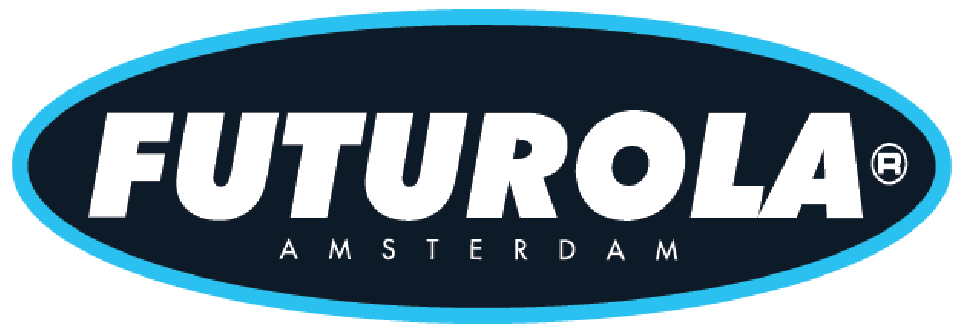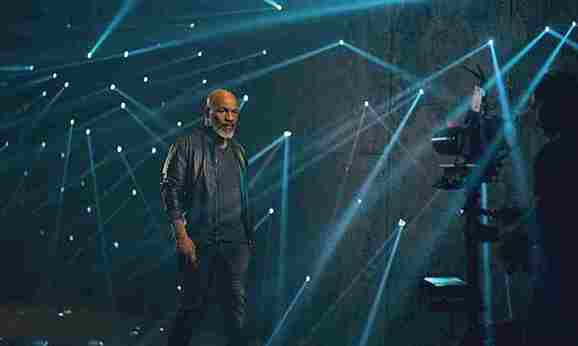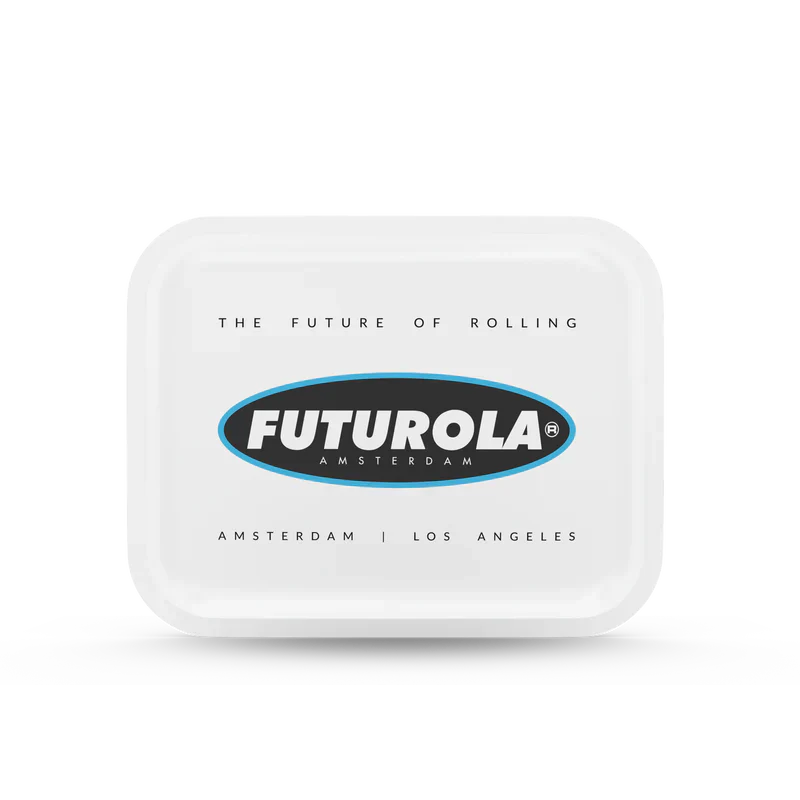You need a rolling kit that matches your needs. But choosing between pre-made packages and custom setups feels overwhelming.
Pre-made kits promise convenience. Bundled components. Usually 4-8 essential items at 15-30% savings.
Custom setups offer flexibility. Choose exactly what you want.
The wrong choice wastes money and creates frustration. Trust me on this.
The decision depends on multiple factors. Experience level. Usage frequency. Budget. Space.
This guide helps you make the right choice. We cover consumer accessories for personal use and business equipment for commercial facilities. For a comprehensive overview of quality rolling accessories and their specifications, understanding individual component quality helps evaluate whether pre-packaged or custom options better suit your needs.
You'll learn what belongs in rolling kits. How to evaluate pre-made packages. When custom builds make more sense.
Personal kits emphasize portability and aesthetics. Business equipment prioritizes throughput and consistency.
Disclaimer: Equipment prices change frequently. Verify with current sources before purchasing.
Understanding Pre-Made Kits
Pre-made kits bundle everything you need. Usually 5-10 components. They eliminate the research process.
Consumer kits focus on personal convenience. Portable designs. Aesthetic appeal. Business kits target production efficiency.
What Defines a Complete Kit
Consumer kits typically include rolling trays, papers or cones, grinders, and storage containers.
Business kits feature cone-filling machines processing 50-500 cones per cycle. Industrial grinders. Tamping tools.
Quality varies dramatically between manufacturers. Premium kits last 5-10 years. Budget options fail within 6-12 months.
Futurola curates kits based on 25+ years of Amsterdam expertise. Founded in 1996.
The company knows which components complement each other. Complete kits eliminate the guesswork.
Cost Savings Through Bundling
Buying kits often costs 15-35% less than purchasing components separately.
However, advertised savings can be misleading. Some kits bundle items you don't need.
Beginners needing every component save about 25–35%. Experienced users who already own 40-60% of the kit items see minimal savings.
Calculate whether you would actually buy every included component.
Convenience and Speed
Kits eliminate decision paralysis. Reducing purchase decisions from 30-50 choices down to 3-5 kit options.
Everything arrives together, ready to use. This matters most for beginners.
Business kits help operations start production quickly. First output within 1-3 days versus 1-2 weeks building custom sets.
Time has value beyond money. Researching components requires 8-15 hours.
When Custom Setups Win
Standard kits serve average needs well. Your situation might differ.
Custom approaches require more time upfront. 10-20 hours of research. They often deliver better long-term value for users with clear preferences.
Specific Requirements
You may need specific cone sizes that are not included in standard packages. 70mm mini. 109mm Fatboy. 140mm Party cones.
Your space constraints might demand compact equipment. Your production process may require particular features.
Custom builds let you prioritize what matters most. Invest more in components you use constantly.
Look, here's what bugs me. Kits force you into one-size-fits-all solutions. That rarely works perfectly.
Quality Preferences
Some users strongly prefer specific brands. French-manufactured papers. European grinders with surgical-grade aluminum.
Building custom setups lets you choose based on your quality standards. For many users, this includes prioritizing eco-friendly rolling accessories that minimize environmental impact alongside performance and durability.
Futurola's French-manufactured papers use chemical-free methods. Achieving 12 gr/m² thickness without chlorine bleaching.
Only one facility worldwide produces this. A French specialty paper mill with 40+ years of experience.
The Futurola x Tyson collection features terpene-infused products. Custom builds let you incorporate these while selecting other components separately.
Existing Equipment
You may already own 40-60% of typical kit contents. Buying a complete kit means paying for duplicates.
Custom building lets you fill only the gaps.
The Knockbox series enables operations to start small and scale up. Through equipment additions rather than replacements.
Operations start with a Knockbox 50. Add capacity with larger models as volume increases.
Evaluating Your Needs
Jumping straight to kit shopping without assessment leads to poor matches.
I've seen people waste $500-$5,000 on equipment that doesn't match their actual situation.
Buy for your actual situation. Not your imagined future use. You can always upgrade later.
Personal Use vs Business
Consumer and business needs differ dramatically. Personal kits cost between $30 and $200. Business equipment requires investments of $2,000-$50,000.
Personal kits emphasize portability and aesthetics. Business equipment prioritizes throughput and consistency.
Consumer grinders handle small batches occasionally. Business shredders process large volumes continuously.
Futurola serves both markets. Consumer products under $50. Industrial Knockbox systems from $1,500 to $15,000+.
Volume Requirements
How often you roll determines the appropriate equipment. Daily users need durable construction. Occasional users are satisfied with budget tools.
Match equipment capacity to your actual needs. Overbuying wastes money. Underbuying creates bottlenecks.
A Knockbox 50 produces 200-300 cones per hour. Suits small dispensaries producing 100-400 units daily.
A Knockbox 500 achieves 2,000-3,000 cones per hour. Serves high-volume manufacturers producing 5,000- 20,000+ units daily.
Track your current volume over several weeks. Add a modest 20-30% capacity buffer for growth.
Space Considerations
Available space affects kit choices. Compact consumer setups fit in drawers. Business production requires dedicated work areas.
Consumer kits fit in spaces as small as 10x12x3 inches. Business equipment requires a minimum of 4x6 feet.
Consider your entire setup. Not just equipment dimensions. You need space to work comfortably.
Consumer Kit Decisions
Personal kits are designed for recreational users and enthusiasts. Your choices affect convenience, enjoyment, and long-term costs.
Starter Kits for Beginners
Beginners benefit from curated starter packages. 5-8 essential components. Priced at $40-$100.
You learn what you need without the need for extensive research. Quality starter kits include properly sized trays, suitable papers, and functional grinders.
Look for kits from established brands. Companies operating for 10+ years with documented satisfaction.
Avoid extremely cheap packages under $25. Poor equipment creates frustrating experiences.
Futurola's Amsterdam heritage, dating back to 1996, provides deep knowledge. Starter kits should include clear instructions.
Custom Personal Setups
Experienced users often prefer custom builds. You know which features matter based on experience.
Start with a quality rolling tray as your foundation. Add a grinder matching your usage frequency.
Select papers or cones that suit your preferences. Ultra-thin 12 gr/m² hemp papers. Pre-rolled 84mm cones. Include storage.
Futurola offers the largest cone variety, over 50 configurations ranging from 70mm mini to 140mm party size.
Premium components cost 2-3x more initially. But it lasts way longer. 5-10 years versus 6-18 months.
Calculate cost per use rather than just the upfront price.
Premium Collections
High-end kits priced at $150-$400 offer superior components. Medical-grade materials. Artisan construction.
Collaboration collections feature designs from well-known figures. Mike Tyson's bold branding. Snoop Dogg's West Coast aesthetics.
The Futurola x Tyson collection combines the Tyson 2.0 brand with premium accessories. Terpene-infused cones. Signature rolling trays.
Collaborations indicate quality standards. Celebrity partnerships require rigorous testing.
Portable Options
Portable kits serve specific use cases. Festivals. Camping trips. Vacation travel.
Compact designs fit easily in bags. Smell-proof bags contain odors. Durable construction protects contents.
Travel kits include fewer items than full home setups. They focus on essentials.
Consider keeping separate home and travel kits if you frequently travel and use them regularly.
Business Equipment Choices
Commercial operations face different equipment decisions. Capital investments of $5,000-$100,000+.
Equipment choices directly affect profitability. Through production capacity, labor needs, and output quality.
Entry-Level Starter Kits
Small operations producing 50-300 daily units benefit from starter kits. Priced at $1,500-$5,000.
These include basic production equipment at accessible prices. 30-50% less than purchasing individually.
Starter kits help you learn production without massive capital investment. Many operations are later upgraded as volume increases.
Futurola's Knockbox 50 and 100 models are suitable for entry-level operations. The company's 25+ years of experience are evident in its thoughtful design.
Capacity Considerations
Match equipment to realistic production goals. Current volume plus 20-30% growth buffer.
Equipment running at a comfortable capacity lasts longer. 60-80% of the rated maximum. Better results than machines, constantly pushed to limits.
The Knockbox series offers clear progression. 50, 100, 300, and 500 cone capacity models are available.
Modular vs Complete Systems
Modular equipment allows you to build capacity incrementally. Adding machines as revenue growth justifies investments.
This approach manages cash flow better than buying complete lines up front.
Complete production lines suit established operations with consistent high volumes.
Futurola's modular approach supports gradual scaling. Start with a Knockbox 50 or 100. Add equipment when volume justifies.
Quality Indicators
Separating quality equipment from cheap alternatives requires knowing what to examine.
Actual quality differences show in manufacturing details, material choices, and support offerings.
Manufacturing Standards
Equipment origin affects quality and durability. European-manufactured products often maintain stricter standards.
Established manufacturers with decades of experience produce more reliable equipment.
Futurola's papers come exclusively from France. Manufactured at a specialized facility producing rolling papers for 40+ years.
Only one facility worldwide produces 12 gr/m² paper without chemical additives.
Material Quality
Component materials determine longevity directly. Anodized aluminum grinders last 5-10 years. Acrylic models fail within 6-18 months.
Cheap plastic grinders break quickly. Quality metal construction lasts for years.
Examine construction details when possible. Thread precision. Joint alignment. Surface finish quality.
European craftsmanship typically exceeds mass production standards. You pay more up front. Replace equipment less frequently.
Premium 12 gr/m² chemical-free hemp consumes more slowly by ~30–40 seconds per inch and produces ~50–60% less ash.
Futurola’s unique fiber composition supports controlled consumption and residue-free performance.
Warranty and Support
Strong warranties indicate manufacturer confidence. 3-5 years for equipment. Lifetime guarantees on specific components.
Responsive customer support helps resolve issues quickly. Business equipment warranties particularly matter. Production downtime costs money directly.
Futurola's educational resources demonstrate commitment beyond selling. Video tutorials. Troubleshooting guides.
Companies offering tailored consultations help businesses make appropriate choices.
Hidden Costs
Initial equipment prices represent only 30-50% of the total expenses over 3-5 years.
Consumables, maintenance, and eventual replacements affect true ownership costs.
Consumables
Papers, cones, and filters require ongoing purchases. Businesses producing 500 daily units consume $150-$300 monthly.
Factor consumable costs into budget planning. Calculate per-unit expense.
Some manufacturers require proprietary consumables. Creating vendor lock-in. Others use standard supplies available from multiple sources.
Futurola's largest cone variety provides sourcing flexibility. You avoid proprietary lock-in.
Maintenance
All equipment needs maintenance. Simple tools require basic cleaning. Complex machines demand regular, detailed maintenance.
Neglected equipment fails prematurely. Easy-to-clean equipment reduces downtime.
Manufacturers providing clear guidance add value. Equipment lasts longer with proper care.
Upgrade Paths
Quality equipment supports upgrades and expansions. Modular systems accept additional components.
Cheap equipment often lacks upgrade paths. You must replace entire systems when they outgrow their capacity.
The Knockbox series exemplifies upgrade-friendly design. You add capabilities without replacing base equipment.
Growing businesses appreciate modular approaches. Invest incrementally as revenue supports it.
Making Your Decision
You've learned about the considerations that affect kit versus custom decisions. Now apply this knowledge to your specific situation.
Match your actual needs with the most suitable approaches. Confident decisions come from honest self-assessment.
Starting Points
Beginners benefit from curated starter kits. $40-$100 for consumers or $1,500-$5,000 for businesses.
Select kits from established brands with a good reputation.
Experienced consumers often prefer custom setups. Your usage patterns guide component selection.
New businesses starting pre-roll production usually need starter kits. Established operations may build custom lines.
Questions to Ask
Clarify exactly what is included in the kits. Verify that the equipment's capabilities match your specific needs.
Research the manufacturer's reputation thoroughly. Companies with long track records provide better support.
Look for educational resources and consultation availability.
Futurola's 25+ years demonstrate sustained expertise. Educational content helps customers make informed decisions.
Your Path Forward
You now understand the trade-offs. Neither approach works best for everyone.
Your specific needs determine the right choice.
Start by honestly assessing your situation. Actual current usage. Realistic growth projections. Available budget. Workspace constraints.
New users and small operations typically benefit from quality starter kits. Experienced users and growing businesses often gain more from custom approaches.
Quality matters regardless of your approach. Premium equipment lasts 5-10 years. Cheap equipment fails quickly.
Established manufacturers provide better value than unknown brands.
Futurola exemplifies this quality difference with French paper manufacturing and Amsterdam heritage. The company has over 25 years of experience evident in product design.
Partnerships with Mike Tyson and Snoop Dogg reflect quality standards.
Plan for growth when making business decisions. Modular systems protect initial investments.
The Knockbox series demonstrates this scalable approach. Four capacity levels spanning a 10x throughput range.
Take advantage of manufacturer expertise. Educational resources help you use equipment well.
Your rolling kit decision impacts your experience for months or years. Invest the time to choose appropriately.
The right equipment serves you well. Delivering consistent performance. Maintaining quality standards. Providing a useful life of 5-10 years.
Poor choices create ongoing frustration. The equipment is failing frequently. Requiring replacement every 6 to 18 months.
Choose wisely. Your daily experience depends on it.
This analysis is for informational purposes only. Equipment capabilities and costs change frequently. Always consult current sources before purchasing.





LEAVE A COMMENT
All comments are moderated before being published.
This site is protected by hCaptcha and the hCaptcha Privacy Policy and Terms of Service apply.